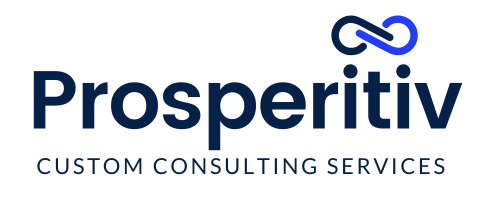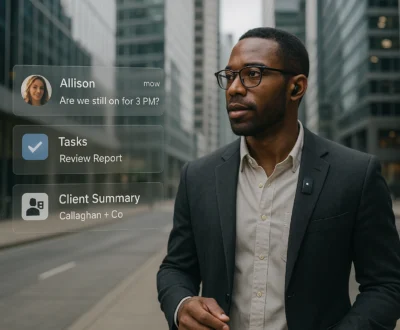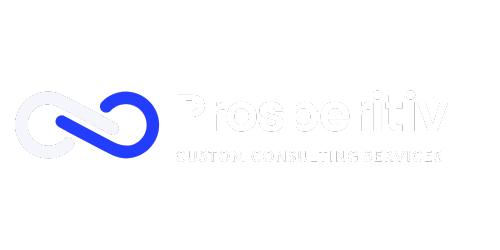
Pay-per-click campaigns (PPC) are often difficult to analyse as so much data is generated at a rapid pace. Not only is the sheer amount of data challenging but you also need to understand what to look at first, and how that information can help your brand achieve success.
If you want to successfully manage a PPC campaign, you need free up enough time to focus on the stuff that really matters, i.e. growing your business and looking after your customers. In this guide, you will learn how to optimise your PPC campaign but first, let’s recap on what exactly pay-per-click means.
What Is PPC?
PPC is a model of internet marketing where advertisers (brands) pay a fee every time someone clicks on their ads. In the most basic of terms, it’s a way brands buy website visits rather than trying to “earn” them organically.
Search engine advertising is one of the most popular forms of PPC as advertisers can bid for ad placement within a search engine’s sponsored links. This happens when someone searches a keyword that is related to what their business is offering.
A simple example is a marketing agency bidding on the keywords “PPC tips”, “marketing automation software” or an online store bidding on “ecommerce” or “online shopping UK”.
Optimising Your PPC Campaign
Before you even think about setting up your PPC campaign, you should clearly understand what the primary goal is. More often than not, these goals are ‘generating more leads’ or ‘getting more customers to make a purchase’ (conversion).
Not having a clear goal in mind means analysing the incorrect data which could lead to changing the wrong things and undoing all of your hard work. With that freshly ingrained in your mind, let’s take a closer look at some PPC optimisation tips.
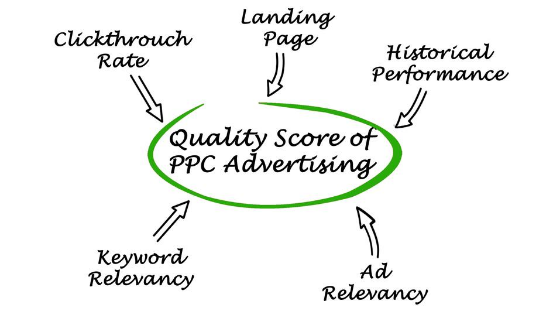
Measure KPIs Of Multiple PPC Channels
Many PPC campaigns are run across multiple channels so it’s important to keep track of which ones are performing better. This means measuring your primary KPIs (key performance indicators) and also anything else that might play an important supporting role.
Just because a PPC ad may show more conversions than Facebook or YouTube doesn’t mean those channels aren’t playing a role in the buyer’s journey. Spend some time checking data from each channel to see which campaigns are performing best and budget accordingly from there.
Budgeting And Search Impression Share
The official definition of Impression share (IS) “is the percentage of impressions that your ads receive compared to the total number of impressions your ads could get”. It’s a crucial factor to PPC success, especially for marketers who bid heavily on their own branded terms.
Review your impression share if there are certain areas where you are defending brand-specific keywords and any other popular terms that result in regular conversions. If you have a limited budget and start falling behind on impression share, re-examine how you have allocated funds and make the necessary adjustments.
Recommended: ‘How to Improve Your Google Ads Impression Share’
Adjust Bids According To Time, Day And Location
While bid adjustments are done at different levels, traditional, manual bid management is done at the keyword level. You can adjust bids by day of the week or even hour of the day, among others. Another bid to consider is excluding certain times of the day or days of the week.
An often-overlooked metric is performance by location which is incredibly important as some locations fare differently than others. If you continuously review and adjust ad campaigns to match your number one goal, they will become much more effective.
When performing nationwide PPC campaigns, remember to compare the budget of bigger cities with their conversion rates. You can also bid down or exclude subpar locations completely, similarly to optimising for hour of the day.
Analyse Search Queries And Negative Keywords
Looking in detail at the specific queries users are searching for will help match them with your brand-specific keywords. This provides valuable insight into paid search phrase matching and those queries that are less relevant or not relevant at all.
This is where negative keywords come into the equation. By including negative keywords, you can prevent wasted ad spend considering that those similar phrases might cater to customers searching for an entirely different product.
Recommended: ‘How Do Negative Keywords Work?’
Review Underperforming Keywords
We’ve already covered keyword bid adjustments but there is one other aspect of keywords you need to know about. When a specific keyword, ad group, or campaign is struggling, there will be a lack of conversions and a huge budget drain. For that reason, it’s important to review the performance of your keywords against the goals you have set.
If some of your keywords are underperforming despite reviewing search queries, making bid adjustments, testing landing pages and match types, you should remove them from the PPC campaign. When analysing data to see what’s affecting your campaign ROI, you will not only gain valuable insight but you also start to optimise your account for growth instead of considering shutting it all down.
Contrary to what some may believe, it’s not just about pausing or stopping your underperforming campaigns but rather truly understanding them and making the necessary changes to improve performance.
PPC And Landing Pages
Landing pages may not be directly related to an ads account but they are critical to your PPC performance. People often overlook landing pages as they cannot be adjusted as easily as the other elements when making a change based on data.
Brands are sometimes unwilling or unable to invest in landing pages even though they are hugely successful when it comes to converting users. Remember, keywords and ads may get users to visit your website but good landing pages and quality content will close the deal.
Create Compelling PPC Ad Copy
Another element of paid search that you should test and optimise is ad copy. However, before you start making improvements to your PPC ad copy, it’s important to understand some of the ins-and-outs of Google Ads’ PPC text ad formats.
Besides, you can’t create good copy if you don’t know what readers look at first and pay most attention to. Once you have become more familiar with PPC text ads, it’s time to start writing and optimising your content.
Identifying the parts of your ads that will drive the most conversions when you change them is vital for performing CTR and CRO tests. The easiest way to determine this is by identifying the ads with the highest click-through rate and those with the lowest cost-per-conversion.
Devices And Audience Analysis
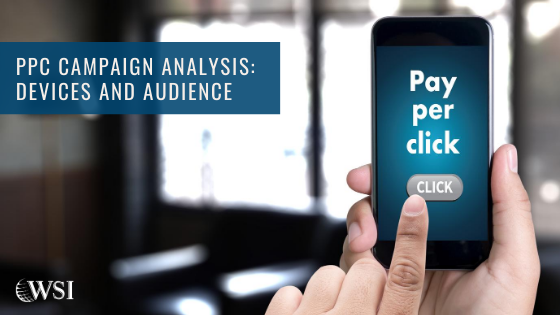
We don’t have to remind you how important a mobile-friendly website is, do we? Well, besides content displaying properly, knowing which devices most of your audience members view your ads will help segment your audience and set up the right ad types with the most relevant content.
Compare how your campaigns are performing on mobile vs desktop vs tablet and make adjustments from there. At the same time, analyse the performance of your remarketing lists and make the necessary changes.
If you are using demographics for search, find out how a particular demographic is performing, such as age range vs geographic location, gender or others. You can add as many audiences as you like and keep tabs on how they each compare to your baseline users. From there, simply adjust the bids based on relative performance and watch how your PPC campaign unfolds.
Choosing The Right Match Type Strategy
Match Type Strategy involves having several options for how the keywords you bid on are matched to real search queries. These are Broad, Phrase, and Exact match types and they all play a specific role in your account. Find out what they do for you and make the right choice to ensure positive PPC campaign ROI.
Maybe Exact match works well on some terms but it can be too expensive for others. Another consideration is whether Phrase match is doing anything that Modified Broad can’t do but at a lower cost. You need to examine how different iterations of the same keyword perform and then make adjustments to maximise your cost vs conversion metrics.
The Importance Of Keyword Matching
How Google chooses to match keywords you’re bidding on is something else to consider. It’s a higher-level assessment that asks all the right questions which help you determine which Ad Groups Google is matching search queries to and whether they are going where you intended.
If Google is matching a specific search term across your account, you could see some Ad Groups performing better for that term than others. However, in other scenarios, it might be matching in a way you don’t want it to.
Utilise Google Experiments
Just as you would perform AB Testing in email marketing or landing page design, you can use the Experiments feature in Google Ads. This is a simple, powerful way to try certain optimisations which could negatively impact your ROI.
Google’s Experiments Feature is a tool that allows you to duplicate a specific ad setup, change certain areas to test and launch it alongside your original ad. You can control how much traffic will see the test as you can specify to Google the percentage of searches to send to it.
Related: ‘How To Use Google Ads Experiments’
Final Thoughts
PPC campaigns typically generate 80% more brand awareness and more profit faster than other marketing methods. With numbers like that, you’d be silly not to use paid search ads. If you consider that organic traffic is nowhere near what it was a few years ago on most social platforms, PPC campaigns should be part and parcel of any marketing strategy.
If you need help with creating or managing your PPC campaign, please get in touch through our website or call 01453 542761. You can request a free consultation where we will help find the best strategy for your brand. WSI eMarketing also specialises in content marketing, SEO, social media, email and marketing automation.
Recent Posts
Popular Posts
About us and this blog
We are a digital marketing company with a focus on helping our customers achieve great results across several key areas.
Request a free quote
We offer professional SEO services that help websites increase their organic search score drastically in order to compete for the highest rankings even when it comes to highly competitive keywords.
Subscribe to our newsletter!
More from our blog
See all postsRecent Posts
- OpenAI’s Wearable AI Device Could Be Your JARVIS April 10, 2025
- Google AI Mode and the Future of Search: A Complete Guide April 3, 2025
- AI Agents in SMEs: Is Your Business Missing Out? March 24, 2025
